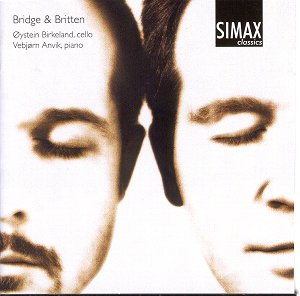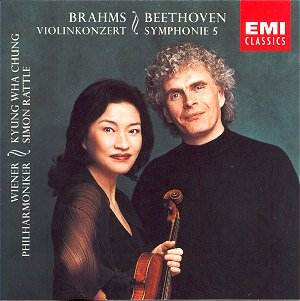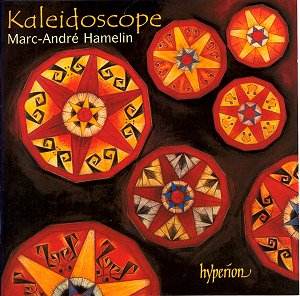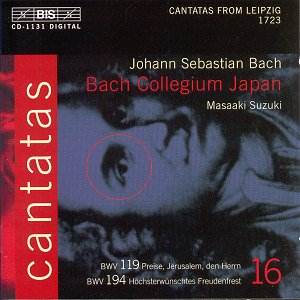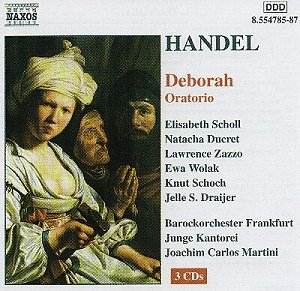 Composer: George Frideric Handel
Composer: George Frideric Handel
Works: Deborah
Performers: Elizabeth Scholl (soprano), Natacha Ducret (soprano), Lawrence Zazzo (countertenor), Ewa Wolak (contralto), Knut Schoch (tenor), Jelle S. Draijer (baritone), Junge Kantorei, Barokorchester Frankfurt/Joachim Carlos Martini
Recording: Live performance, May 1999, Kloster Eberbach, Germany
Label: NAXOS 8.554785-87
Handel’s oratorio Deborah, despite its historical reputation as a “failure,” offers a rich tapestry of musical invention and emotional depth that belies its dismissal. Composed in 1733, during a pivotal moment in Handel’s career, this work exemplifies his transition from opera to the burgeoning genre of oratorio. The libretto, crafted by Samuel Humphreys, draws from the Old Testament narrative in Judges, yet its rather skeletal plot fails to provide a strong dramatic foundation. Nevertheless, Handel’s ability to infuse even the most modest scenarios with grandeur is evident throughout the score, which reuses and repurposes themes from his earlier works, including the Chandos Anthems and Music for the Royal Fireworks.
The performance led by Joachim Carlos Martini reveals a thoughtful and intelligent approach to this complex score. The decision to utilize the overture from the 1744 revival, rather than the original, is judicious, allowing for a more cohesive orchestral texture. The orchestra, employing period instruments, plays with a commendable blend of agility and warmth, though there are moments—particularly in the choral passages—where the ensemble seems stretched, revealing a slight lack of comfort with Handel’s demanding writing. The eight-part choral sections, rich in antiphonal interplay, showcase Handel’s intricate counterpoint, yet the chorus occasionally falters under the weight of the musical complexity, particularly in the latter part of the work.
The soloists shine brightly, each contributing a distinctive interpretation that enhances the overall experience. Elizabeth Scholl’s portrayal of Jael is marked by both technical precision and emotional depth; her agile soprano navigates Handel’s demanding passages with ease, particularly in the aria “O praise the Lord with one consent,” where her vibrant tone captivates. Lawrence Zazzo’s countertenor brings a haunting quality to Barak, effortlessly blending masculinity with the ethereal nature of his voice. Ewa Wolak’s contralto offers a grounding presence, balancing the brighter sopranos with a rich, resonant timbre. However, Knut Schoch’s tenor sometimes lacks the clarity and confidence needed for the more challenging sections, which detracts from the overall coherence of his character’s portrayal.
The recording quality captures the live essence of the performance, with a bright, spacious sound that allows the intricate textures of Handel’s orchestration to bloom. While occasional audience noise and slight ensemble blemishes are present, they serve as reminders of the spontaneous energy of a live concert. The extensive indexing and informative booklet add to the listener’s engagement, providing context and enhancing the experience of this rarely performed work.
Handel’s Deborah, far from being merely a pasticcio or an afterthought in his illustrious oeuvre, stands as a testament to his inventive genius. This Naxos recording, with its committed performances and thoughtful interpretations, invites listeners to delve into a lesser-known part of Handel’s repertoire, revealing the undeniable strength and beauty within his so-called failures. Engaging with this work not only enriches one’s appreciation for Handel but also highlights the resilience and artistry that characterize his musical legacy.
